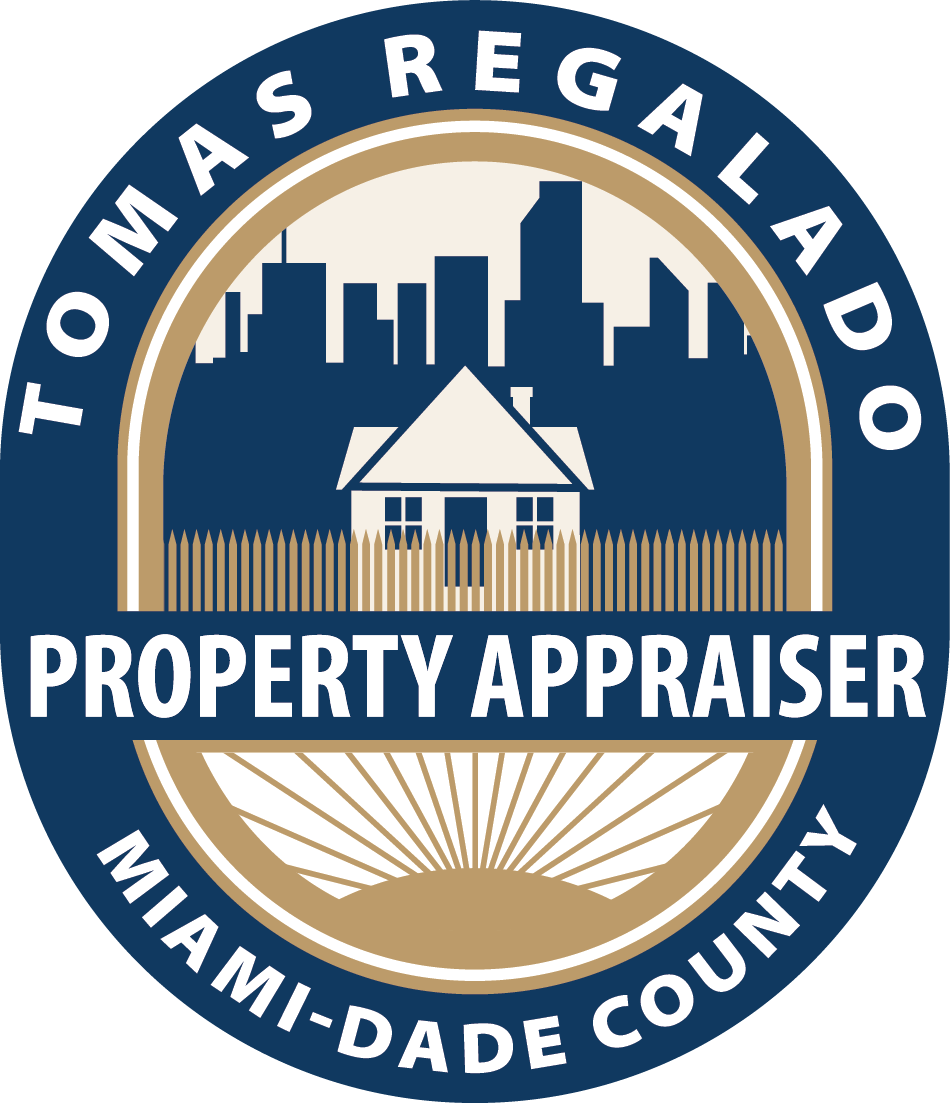Join the Mission
Important Notices
- A new application must be submitted each year by March 1.
- If the use changes or the property is no longer maintained appropriately, the exemption can be revoked and back taxes may be assessed for up to 10 years.
- Exemptions only apply to the taxing authority that adopted the ordinance (e.g., County or certain municipalities).
Historic Properties
In the vibrant heart of South Florida, beyond the beaches and skyscrapers, pulses a deep and rich history that defines Miami and Miami-Dade County. Streets that were once indigenous trails. Buildings that narrate centuries of evolution.
Historic Properties
The Property Appraiser recognizes the value of preserving historic sites and structures. The Property Appraiser’s Office supports this mission by offering tax-related benefits to qualifying historic properties.
- Properties that have received a Historic Property Tax Exemption
- Properties that have received a tax adjustment based on historic considerations under Florida Statute 193.011
Each folio number in the PDF links directly to the Property Appraiser's search page.
Properties Granted Historic Exemption (Tax Year 2024)These properties have been designated historic and approved for ad valorem property tax exemptions due to qualifying preservation activities.
Exemption Criteria:
- Recognized as historic (local, state, or federal)
- Used for nonprofit or qualifying commercial purposes
- Restoration or rehabilitation meets approved preservation standards
Historic Exemptions List (PDF)
Each folio number in the PDF links directly to the Property Appraiser's search page.
These properties were reviewed by the Property Appraiser’s Office and received a value adjustment due to historic designations or restrictions, following Florida Statute 193.011.
Consideration factors may include:
- Historic restrictions limiting economic use
- Rehabilitation of significant features
- Historic preservation covenants or easements
Understand Municipal Codes
Each folio number includes a two-digit municipal code to help identify the property’s location. For example:
- 01 = Miami
- 02 = Miami Beach
- 30 = Unincorporated Miami-Dade
Additional Resources

Requirements
If you are a property owner in Miami-Dade County and your building is historically designated, you may qualify for a partial or full ad valorem property tax exemption. This exemption is designed to encourage the preservation and appropriate rehabilitation of historic structures.
Who May Apply?
You may be eligible if your property meets all of the following:
- Historic Designation
- National Register of Historic Places
- A contributing structure in a National Register Historic District, or
- Designated as a local historic site or structure under a city or county preservation ordinance.
- Eligible Use
- Used for commercial purposes, or
- Used by a nonprofit organization under IRS sections 501(c)(3) or 501(c)(6).
- Public Accessibility
- The property must be open to the public for at least 1,800 hours annually (equivalent to 40 hours/week for 45 weeks/year).
- Improvement Criteria
- Improvements must increase the property’s assessed value by 50% or more.
- Work must follow recognized preservation and rehabilitation standards.
- Preservation Agreement
- The owner must agree to preserve the historic character, often through a 10-year covenant or easement.
Annual Filing Deadline: March 1
- To retain your exemption or classification, you must file Form DR-482HP annually and keep the historic character of the property in good repair.
Qualifying Improvements
To be eligible for a historic exemption on improvements, the following conditions apply:
- Minimum Threshold: The value of improvements must equal or exceed 50% of the property's assessed value at the time of application.
- Types of Eligible Work:
- Structural repairs (e.g., roof, foundation)
- Restoration of historical features (e.g., doors, windows, facades)
- Systems upgrades that preserve historical integrity (e.g., electrical, HVAC)
Not Sure if Your Property Qualifies as Historic?
If you believe your property may have historic significance but has not yet been designated, please refer to the Resources tab to begin the designation process. You may also contact the Miami-Dade Historic Preservation Office for assistance:
Historic Preservation Office
Sarah Cody, Chief
Stephen P. Clark Center
111 NW 1st Street, 12th Floor
Miami, FL 33128
305-375-4958 | historicpreservation@miamidade.gov
Please note: contacting the Office of Historic Preservation does not guarantee your property will receive historic designation or qualify for an exemption. It is, however, the essential first step toward determining eligibility.
Submit Your Application
To apply for the Historic Property Ad Valorem Tax Exemption, you must complete and submit the official state application form by March 1:
Choose one of the following submission methods to submit your application:
- By email - Submit the completed form using our Contact Form
- Schedule an Appointment – Use our Appointment Application to book a visit at either SPCC or South Dade.
Walk-In
In person (Monday through Friday, 8 a.m. - 5 p.m.)
- Stephen P. Clark Center
111 NW 1 Street
Suite 710
Miami, FL 33128 - South Dade Government Center
10710 SW 211 Street
2nd Floor
Cutler Bay, FL 33189
By mail
Miami-Dade County Property Appraiser
P.O. Box 013140
Miami, Florida 33101-3140
Do not submit the same application using both methods.
Once received, your application will be reviewed by the Property Appraiser’s Office. You can expect to receive a confirmation letter or email. If additional documentation is required, a staff member will contact you. Final determinations—approval, partial approval, or denial—will be issued after the review process is complete.
Include Required Documentation:
- Legal description and folio number
- Proof of nonprofit or commercial use
- Documentation of historic designation
- Proof of public access hours
- Description and cost of improvements
Review and Inspection:
- The Property Appraiser’s Office may inspect the property and request supplemental information.
- Coordination may occur with the local Historic Preservation Office to confirm compliance.
Decision Notice:
- You will receive written notification of approval, partial approval, or denial.
- The exemption, if granted, applies only to the taxing authority that adopted the ordinance.
Florida Statutes
Local governments can adopt ordinances to assess historic properties used for commercial or nonprofit purposes based on their character or use, applying only to the jurisdiction that adopts the ordinance. To qualify for the assessment, properties must be listed as historic, open to the public for at least 40 hours per week, maintained in good condition, and used for commercial or nonprofit purposes. Property owners must file an annual return by March 1 to maintain the historic property assessment; failure to do so results in a one-year waiver of the exemption. If granted, the property’s assessment will be based on factors like property size, condition, market value, and income produced, specifically for the commercial or nonprofit use of the property. Property owners who violate the criteria or change the property’s use will be liable for back taxes (deferred tax liability) for up to 10 years, including interest.
County or municipal governing authorities can offer up to a 50% ad valorem tax exemption for properties used for commercial or nonprofit purposes (501(c)(3) or (6)) that meet certain criteria. The property must be listed in the National Register of Historic Places, contribute to a National Register Historic District, or be designated as a historic property under local preservation ordinances. The property must be regularly open to the public for at least 40 hours per week for 45 weeks a year, or an equivalent 1,800 hours annually, with entry fees comparable to local fees. Local governing authorities must notify the property appraiser by December 1 of the year before the exemption takes effect or expires, and the exemption applies only to taxes levied by the governing authority granting the exemption. To maintain the exemption, the historic character of the property must be preserved in good repair to retain its historical significance.
193.505 Assessment of historically significant property when development rights have been conveyed or historic preservation restrictions have been covenanted:
Property owners of historically significant properties may either convey development rights to the county or enter into a covenant with the county to preserve the property's historic value for at least 10 years. The county governing body may accept the conveyance or covenant, which must be recorded with the appropriate officer, after consulting with the municipality where the property is located. When a property is subject to a covenant or conveyance, it will be assessed at fair market value, considering the restrictions on its use, which must align with historic preservation goals. If the property is no longer used in line with the covenant's terms, the owner must pay a deferred tax liability, equal to the difference between the taxes that would have been due without the covenant and what was actually paid during the covenant's term. To qualify, properties must be listed on the Nat’l Register of Historic Places or designated as historically significant by the Division of Historical Resources or a local historic preservation board.
Historic Preservation Boards and Resources by Municipality
For a broader view of historic areas, use the maps provided below.
Countywide Maps
Miami-Dade County
- Contact Information
- Office of Historic Preservation
Preserves and protects cultural, historical, architectural, and archaeological resources throughout unincorporated Miami-Dade County. - Historic Preservation Ordinance
- Historic Preservation Board
Reviews designations and preservation-related matters through public monthly meetings. - Miami-Dade Historic Resources Guide
City of Coral Gables
- Contact Information
- Historic Preservation Division
Oversees designation, regulation, and educational outreach related to Coral Gables' historic assets. - Historic Preservation Ordinance
- Forms & Applications
City of Hialeah
- Contact Information
- Historic Preservation Ordinance
- Historic Preservation Board
Evaluates historic and architectural significance of properties for potential designation.
- Contact Information
- Historic Preservation Ordinance
- Historic Preservation Board
Supports the recognition and protection of buildings and sites significant to Homestead’s history.
City of Miami
- Contact Information
- Historic Preservation Ordinance
- Historic Preservation Division
Focuses on identifying, preserving, and maintaining historically and architecturally significant resources. - Historic & Environmental Preservation Board (HEPB)
Designates landmarks and districts, and reviews proposed alterations to designated properties.
City of Miami Beach
- Contact Information
- Historic Preservation Ordinance
- The Planning Department
- Historic Preservation Board – Incentives & Resources
Manages design review and preservation standards within designated historic districts. - Historic Properties Viewer
Interactive map offering details on individually designated and contributing structures.
Miami Shores Village
- Contact Information
- Historic Preservation Ordinance
- Historic Preservation Board
Protects structures and neighborhoods with historical and cultural value in the village.
City of Miami Springs
- Contact Information
- Historic Preservation Guide
- Historic Preservation Ordinance
- Forms & Applications
- Historic Preservation Board
Advises the city on historic designations and preservation activities.
- Contact Information
- Historic Preservation Ordinance
- Historic Environmental Preservation Board
Responsible for preserving the city’s unique Moorish Revival architectural heritage.
- Contact Information
- Historic Preservation Ordinance
- Historic Preservation Board
Reviews historic nominations and provides guidance on local historic preservation matters.
City of Sunny Isles Beach
- Contact Information
- Historic Preservation Ordinance
- Historic Preservation Board
Guides preservation decisions in this growing coastal community.
Historic Preservation
This StoryMap was developed in conjunction with the creation of the Miami-Dade Historic Resource Guide as part of a forward-thinking effort to raise awareness and support expanded access to information and resources focused on our collective historic preservation goals to foster resilience and equity in our communities.
Explore the Story Map
Our Story



Protecting these sites is not just about conserving buildings; it’s about keeping alive the cultural identity and collective memory of our communities. The historic treasures of our county and the value of our historic architecture offer a satisfaction that endures over time. Roots is essential to building a future with identity and pride. Even beneath our feet, history emerges.
In Brickell, a 2,500-year-old archaeological site of the ancient Tequesta civilization was discovered. Its future is under debate, facing the pressures of modern urban development.






